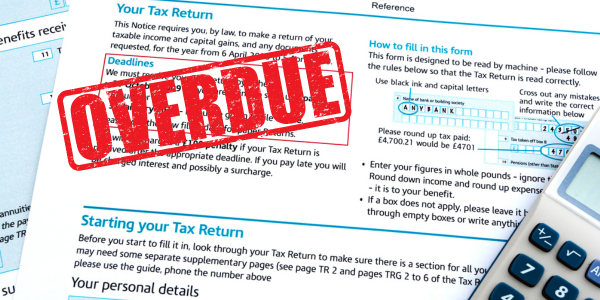Statutory Audits vs Non-Statutory Audits: What’s the Difference?
Audits provide an independent view of the financial statements of an entity.
A statutory audit is an audit that must be conducted in accordance with relevant legislation.
A non-statutory audit is generally an audit that is conducted at the request of the directors, Trustees or shareholders – although not required by legislation.
For most larger entities, an audit is a legal requirement that must be undertaken annually (see thresholds below). Smaller entities are generally exempt from the requirement to have an audit conducted but non-statutory audits are frequently conducted and can provide third parties such as lenders with financial statements that have been independently reviewed.
Which companies must undertake a statutory audit?
Certain companies, irrespective of size, must have a statutory audit undertaken and these include:
- PLCs
- Certain entities regulated by the FCA (Financial Conduct Authority)
- Certain entities involved in insurance, banking and certain other financial activities
See more about services for statutory audits from Perrys Chartered Accountants.
Which companies are exempt from statutory audits?
The majority of small private companies are exempt from undergoing statutory audits of their annual accounts. To be exempt, companies must meet at least two of the following criteria if their year ended after 01 April 2025:
- annual turnover of less than £15 million
- gross assets worth less than £7.5 million
- 50 or fewer employees on average
For years ending before 01 April 2025, the thresholds are
- annual turnover of less than £10.2 million
- gross assets worth less than £5.1 million
- 50 or fewer employees on average
Circumstances can dictate that these limits are subject to adjustment or additional factors. Examples include:
- first period of accounts
- first period where limits are exceeded
- companies which are part of a group
- periods which are not exactly 12 months
There are different criteria in respect of audits for charities and other not-for-profit organisations. In addition, certain entities regulated by the FCA are subject to statutory audit irrespective of the criteria above.
At Perrys Chartered Accountants, we work with our clients to ensure that they are able to fulfil their statutory obligations and file their audited accounts in an accurate and timely manner.
What are the advantages of a statutory audit?
What is the purpose of a statutory audit? The answer is that for public companies, they are not only a legal requirement, but are also a valuable asset for the management of the business. The main advantages are that audits:
- give authority of the company’s financial statements
- provide shareholders and managers with a focussed view of the business
- highlight compliance issues on tax and other legislation
- highlight any risks to the business
- validate procedures for financial reporting
- help the business to obtain loans and credit
- help to win the confidence of investors
What are the advantages of a non-statutory audit?
In a similar way, for smaller private companies, a non-statutory audit either validates the way the business is performing financially, or highlights issues which need to be addressed.
A non-statutory audit can be of great value when selling a private business, by giving prospective buyers an independent view of its financial position. As authoritative financial reports, signed off audits can be instrumental in obtaining additional finance from banks and lenders, as well as providing reassurance to creditors and suppliers.
The difference between a statutory audit and a non statutory audit
The key difference between a statutory and non statutory audit is that the former is a legal requirement under the Companies Act 2006, and the latter is not. However, whether statutory or not, audits cover the same ground including the examination of:
- Balance sheet
- Income statement
- Changes to equity in the business
- Cash flow statement
- Explanatory notes including accounting policies
Audits are used to challenge the accounts statements in order to make sure that they have been compiled and calculated with full transparency. The types of challenge auditors may put to businesses and their advisers are:
- Are there any issues that have high business or financial risks?
- Does the balance sheet show the company’s assets in full?
- Is the business considering any changes in accounting methods?
- Have any current or pending debts been omitted?
- Have profits or losses been properly calculated?
- Are there any matters from accounts from previous years that are not settled?
- Were there any major changes in operations this year?
- Have the operations of any subsidiaries which have a bearing on the accounts been included?
Once completed, an auditor will write an audit report which will include an opinion about the financial statements they have examined. The opinion will be either unqualified or qualified, depending on whether the auditor considers whether the accounts show a true and fair view (unqualified opinion) or whether the auditor consider that matters pertaining to the financial statements need to be highlighted in the audit report (qualified opinion).
Who carries out an audit?
Auditors must be professionally qualified, usually through the ICAEW (Institute of Chartered Accountants in England and Wales) or ACCA (Association of Chartered Certified Accountants). As qualified auditors, the Perrys team is authorised to review and verify the accuracy of financial statements, as well as compliance with tax legislation.
Internal audit vs statutory audit
Statutory audits are the responsibility of professionals from outside the business, but they often work closely with internal auditors. When internal auditors are involved, there must always be due consideration of the independence of the audit process.
Internal auditors are employed by entities to ensure the veracity and accuracy of company accounts and other financial statements, as well as the procedures used to record and report figures in the financial statements. The scope of their work usually covers compliance concerns, risks, fraud, and data inaccuracies. They will also usually investigate any issues they find, and operate to in an unbiased and objective way.
Internal auditors sometimes begin their careers in accountancy practices and sometimes come from an audit background. Internal auditors can therefore have the knowledge and experience of external statutory auditors, as well as having experience and knowledge of internal accounting systems, controls and the entity and industry in which they are engaged. Internal auditors have their own professional body, the Chartered Institute of Internal Auditors.
Should you require non statutory or statutory audit accounting services please contact your local Perrys branch.








